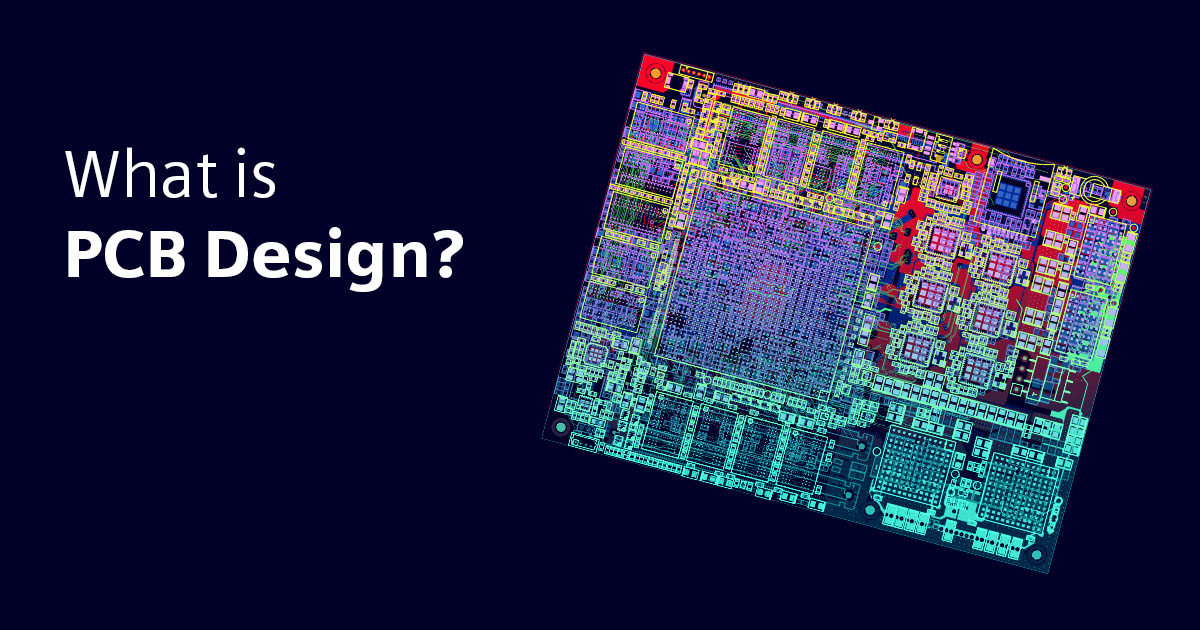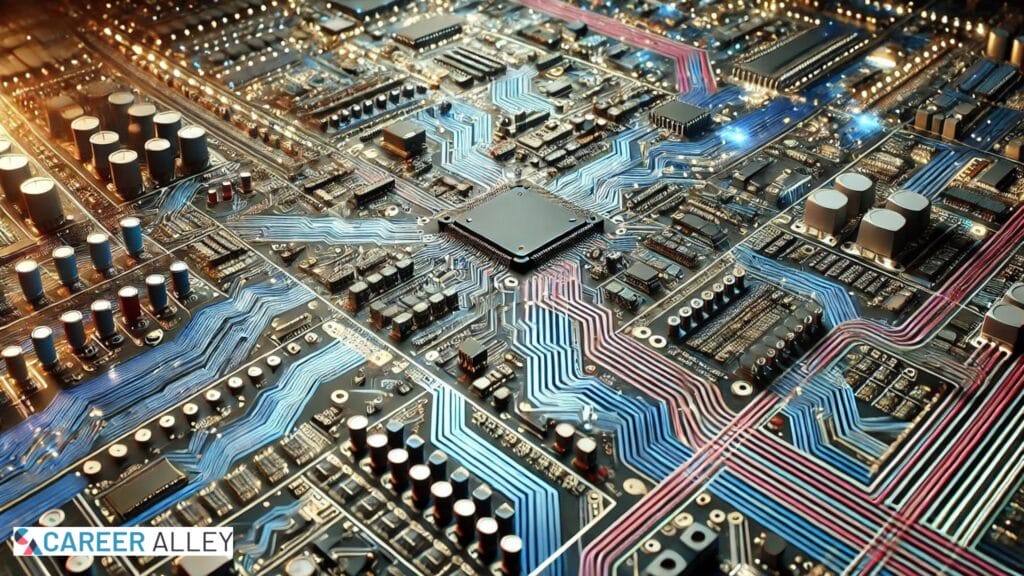Lessons I Learned From Info About Is PCB Design A Good Career

Top 16 PCB Designer Resume Objective Examples ResumeCat
Navigating the World of PCB Design
1. A Closer Look at PCB Design as a Career
So, you're pondering a career in Printed Circuit Board (PCB) design? That's a fascinating field! It's definitely not your average desk job. PCB design involves crafting the intricate layouts that bring electronic devices to life. Think of it as the backbone of almost every gadget you use, from smartphones to cars. Now, the big question: Is PCB design a good career? Let's dive in and explore the perks, challenges, and everything in between.
First off, let's be clear: this isn't your grandma's sewing circle (unless your grandma is a tech whiz, in which case, kudos to her!). It's a field that demands a blend of technical prowess, problem-solving skills, and a dash of artistic flair. You'll be working with specialized software, understanding component specifications, and ensuring that everything fits together neatly — both physically and electronically. It's a bit like being a digital architect, but instead of houses, you're building the brains of machines.
The demand for skilled PCB designers is actually quite robust. As technology continues to advance and become more integrated into our daily lives, the need for professionals who can create efficient and reliable circuit board layouts is only going to increase. This isn't a fad; it's a fundamental aspect of the electronics industry. So, from a job security perspective, PCB design holds a lot of promise. It's not quite printing money, but it's a pretty stable prospect.
Of course, no career is perfect, and PCB design comes with its own set of challenges. It can be technically demanding, requiring continuous learning to keep up with the latest industry standards and software updates. Imagine your favorite video game constantly releasing new patches; you'd need to stay on your toes! But if you enjoy learning and solving puzzles, this dynamic environment can be incredibly rewarding. Plus, the feeling of seeing your designs come to life in a functional product is pretty darn cool.

PCB Design Basics Electronic Systems
Unpacking the Benefits
2. The Perks of a PCB Design Career
Alright, let's talk about the good stuff — the benefits that make PCB design an attractive career choice for many. One of the biggest draws is the potential for a competitive salary. Experienced PCB designers are highly valued, and their compensation often reflects their expertise. We're talking a comfortable living, enough to indulge in that extra-large pizza on Friday nights (or whatever your guilty pleasure may be!).
Another significant advantage is the intellectual stimulation. PCB design isn't a repetitive, monotonous task. Each project presents unique challenges, requiring you to think creatively and find innovative solutions. You're constantly learning, adapting, and pushing the boundaries of what's possible. It's like a mental gym, keeping your brain sharp and agile. Plus, you get to play with cool technology all day long!
Many PCB design roles offer a good degree of flexibility. With the right tools and infrastructure, you can often work remotely, giving you more control over your work-life balance. Imagine designing circuit boards from the comfort of your own home, sipping coffee in your pajamas. Sounds pretty sweet, right? Of course, this depends on the company and the specific role, but the possibility of remote work is definitely a perk worth considering.
Furthermore, PCB design provides opportunities for career advancement. You can specialize in specific areas, such as high-speed design or RF design, becoming a sought-after expert in your field. Or, you can move into management roles, leading teams of designers and overseeing complex projects. The career path is rarely a straight line; there's room to grow and evolve as your interests and skills develop. It is really is a good career!

Best Practices For Designing A Pcb Layout Circuit Basics Riset
Facing the Challenges
3. Acknowledging the Difficulties in PCB Design
Okay, let's keep it real. Every rose has its thorns, and PCB design is no exception. One of the biggest challenges is the steep learning curve. Mastering the software, understanding the intricacies of circuit design, and keeping up with industry trends takes time and effort. It's not something you can learn overnight. Think of it as learning a new language — it requires dedication and practice.
Another potential downside is the pressure to meet deadlines. Projects often have tight timelines, and you'll need to be able to work efficiently and effectively under pressure. Imagine being the chef in a busy restaurant during the dinner rush — you need to stay calm and focused to get everything done on time. Stress management is a crucial skill for any PCB designer. It can be challenging, but also deeply rewarding to see something completed and put into mass production.
PCB design can also be quite detail-oriented. A single mistake can render an entire board unusable, leading to costly rework and delays. You need to be meticulous, patient, and have a keen eye for detail. Think of it as being a detective, carefully examining every clue to solve a mystery. Attention to detail is paramount in this profession. It is also not an easy career!
Finally, continuous learning is essential in this field. Technology is constantly evolving, and you'll need to stay up-to-date with the latest software, standards, and techniques. It's like being a competitive athlete — you need to train constantly to stay at the top of your game. If you're not a fan of lifelong learning, PCB design might not be the right fit for you. But if you enjoy expanding your knowledge and embracing new challenges, this could be a very exciting and fulfilling career.

Essential Skills
4. Key Skills for a Successful PCB Design Career
So, you're still interested? Great! Let's talk about the skills you'll need to thrive in the world of PCB design. First and foremost, a strong understanding of electronics is crucial. You need to know how components work, how circuits behave, and how to avoid common pitfalls. It's like being a mechanic — you need to understand the inner workings of the machine to fix it when something goes wrong.
Proficiency in PCB design software is also essential. There are many different software packages available, each with its own strengths and weaknesses. Learning how to use these tools effectively is a key skill for any PCB designer. Think of it as learning how to use a power tool — you need to know how to operate it safely and efficiently to get the job done right.
Problem-solving skills are also critical. PCB design is often a process of trial and error, and you'll need to be able to identify and fix problems quickly and effectively. It's like being a detective — you need to be able to gather information, analyze clues, and solve mysteries. A methodical approach to problem-solving is essential.
Finally, communication skills are also important. You'll need to be able to communicate effectively with engineers, technicians, and other stakeholders. Clear and concise communication is essential for ensuring that everyone is on the same page and that projects are completed successfully. So if you ask yourself, "Is PCB design a good career?" Keep in mind the skills needed for such career.

Getting Started
5. Paths to a PCB Design Career
Okay, you're sold! You want to become a PCB designer. Now what? Fortunately, there are several paths you can take to break into this exciting field. One common route is to earn a degree in electrical engineering or a related field. This will give you a solid foundation in electronics and circuit design. It's like getting a blueprint for your career.
Another option is to pursue a specialized certification in PCB design. There are many different certification programs available, and these can provide you with the specific skills and knowledge you need to succeed. This is like getting a professional license, demonstrating your competence in the field.
Regardless of your educational background, practical experience is essential. Look for internships or entry-level positions that will give you the opportunity to work on real-world projects. This is where you'll really learn the ropes and develop your skills. It's like learning to ride a bike — you need to get out there and practice!
Finally, don't be afraid to network and connect with other PCB designers. Attend industry events, join online forums, and reach out to professionals in the field. Building relationships is crucial for career advancement and staying up-to-date with the latest trends. It's like joining a club — you can learn from others and share your own experiences.
What Does A PCB Designer Do? Career Insights & Job Profiles
Frequently Asked Questions (FAQs)
6. Your Questions Answered About PCB Design
Let's tackle some common questions about PCB design as a career:
Q: What kind of salary can I expect as a PCB designer?A: Salaries vary depending on experience, location, and the specific role. However, experienced PCB designers can earn a very competitive salary. Researching industry salary averages for your specific area is a good idea to get a realistic expectation.
Q: What are the most important qualities of a good PCB designer?A: Attention to detail, problem-solving skills, a strong understanding of electronics, and proficiency in PCB design software are all crucial qualities.
Q: Is PCB design a stressful job?A: It can be, especially when dealing with tight deadlines and complex projects. However, effective stress management techniques and a positive attitude can help you thrive in this environment. After all, what job doesn't have some level of stress, right?
Q: What are some resources for learning more about PCB design?A: There are many online courses, tutorials, and books available. Websites like Altium, Autodesk, and online learning platforms like Coursera and Udemy offer valuable resources. Start exploring and find what works best for your learning style!
So, is PCB design a good career? Hopefully, this article has provided you with the information you need to make an informed decision. It's a challenging but rewarding field that offers opportunities for intellectual stimulation, career advancement, and a comfortable living. If you have a passion for electronics, a knack for problem-solving, and a willingness to learn, PCB design might just be the perfect career for you!